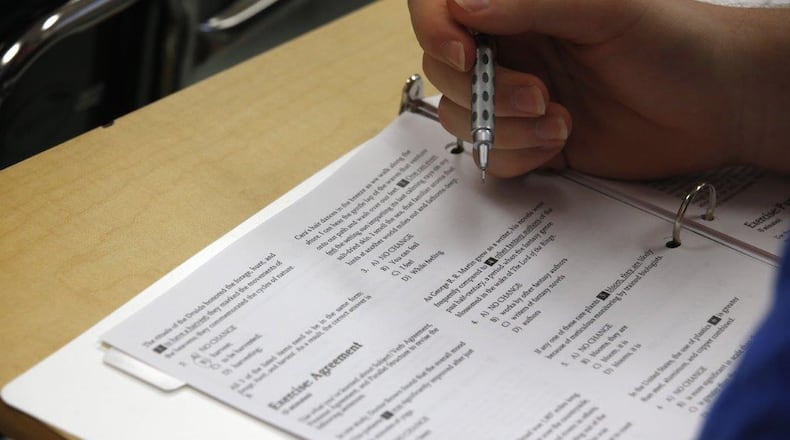“The ability to increase the number of faculty who can teach College Credit Plus courses in our high schools is critical to efforts to meet the educational needs of students and the workforce goals of our community,” said Shannon Cox, superintendent of the Montgomery County Educational Service Center.
Cox said there aren’t enough teachers to teach CCP credits. Students can go to colleges and take these classes, but many of them have no reliable way to get there.
Also, in a recent focus group of high school juniors and seniors, Cox said most of them were clear that these students wanted to stay at school to take classes.
These are still kids, Cox said, and they want to be able to do high school activities, like go to the pep assembly and hang out with their friends.
“They want to be taught by the high school teacher,” Cox said.
A Dayton Daily News investigation in 2022 found that local schools were some of the most likely to take advantage of College Credit Plus. But the schools that took advantage of these courses the most were already wealthy districts like Springboro and Beavercreek.
A statewide 2022 audit found across Ohio that those who are most likely to take advantage of CCP courses are wealthy, white students.
CCP is separate from programs like AP or IB classes, which many public schools also offer. Any student in Ohio can access CCP. That includes homeschool students, private school students and public school students.
Wright State University is partnering with the Montgomery County ESC and Learn to Earn Dayton to implement this grant.
“This initiative represents a significant milestone in our commitment to fostering academic excellence and supporting the growth and development of our educators,” said Susan Schaurer, vice president for enrollment management at Wright State. “Through collaboration and innovation, we are creating pathways for success that benefit both teachers and students alike.”
About the Author

